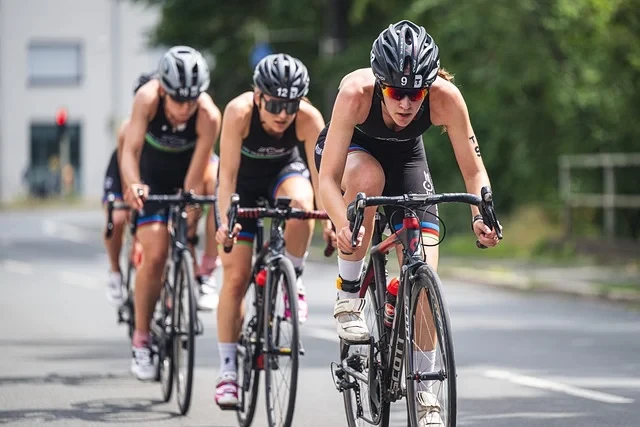Athletic Performance Optimization - A Scientific Approach

Learn how to optimize your athletic performance through proper training, nutrition, recovery, and mental preparation techniques.
Athletic Performance Optimization: A Scientific Approach
Whether you're a competitive athlete or a dedicated fitness enthusiast, optimizing your performance requires a comprehensive approach that combines training, nutrition, recovery, and mental preparation.
The Performance Pyramid
Foundation Level
-
Basic Health
- Sleep quality
- Nutrition basics
- Stress management
- General fitness
-
Movement Patterns
- Fundamental skills
- Mobility
- Stability
- Coordination
Intermediate Level
-
Sport-Specific Skills
- Technical proficiency
- Tactical understanding
- Movement efficiency
- Pattern recognition
-
Physical Preparation
- Strength development
- Power production
- Endurance capacity
- Speed enhancement
Advanced Level
- Peak Performance
- Competition readiness
- Mental preparation
- Strategic planning
- Recovery optimization
Training Optimization
Program Design Principles
-
Progressive Overload
- Systematic progression
- Volume management
- Intensity manipulation
- Recovery integration
-
Periodization
- Macrocycle planning
- Mesocycle structure
- Microcycle design
- Daily organization
Training Variables
-
Volume
- Total work capacity
- Exercise selection
- Set and rep schemes
- Time under tension
-
Intensity
- Load selection
- Speed of execution
- Rest periods
- Density manipulation
-
Frequency
- Training splits
- Recovery periods
- Adaptation timing
- Performance peaks
Performance Nutrition
Pre-Training Nutrition
-
Meal Timing
- 2-3 hours before: complete meal
- 1-2 hours before: light meal
- 30-60 minutes before: snack
-
Nutrient Focus
- Complex carbohydrates
- Moderate protein
- Low fat
- Adequate hydration
Intra-Training Nutrition
-
Hydration
- Water requirements
- Electrolyte balance
- Performance drinks
- Monitoring methods
-
Fuel Sources
- Quick energy
- Electrolyte replacement
- Hydration maintenance
- Performance supplements
Post-Training Nutrition
-
Recovery Window
- Immediate nutrition
- 2-hour window
- Daily requirements
- Adaptation support
-
Nutrient Timing
- Protein synthesis
- Glycogen replenishment
- Hydration restoration
- Micronutrient balance
Mental Performance
Psychological Skills
-
Goal Setting
- Short-term objectives
- Long-term vision
- Process focus
- Outcome management
-
Visualization
- Mental rehearsal
- Success imagery
- Problem-solving
- Performance enhancement
-
Focus Training
- Concentration development
- Distraction management
- Pressure handling
- Competition readiness
Stress Management
-
Relaxation Techniques
- Deep breathing
- Progressive relaxation
- Meditation
- Mindfulness
-
Anxiety Control
- Pre-performance routines
- Cognitive restructuring
- Emotional regulation
- Confidence building
Recovery Optimization
Physical Recovery
-
Active Recovery
- Light movement
- Mobility work
- Blood flow enhancement
- Tissue repair
-
Passive Recovery
- Sleep optimization
- Rest periods
- Regeneration techniques
- Stress reduction
Recovery Tools
-
Manual Therapy
- Massage
- Foam rolling
- Compression
- Stretching
-
Technology
- Compression devices
- Cold therapy
- Heat treatment
- Electrical stimulation
Performance Monitoring
Tracking Methods
-
Physical Metrics
- Strength measurements
- Speed assessments
- Endurance tests
- Power output
-
Physiological Markers
- Heart rate
- Blood markers
- Sleep quality
- Recovery status
Data Analysis
-
Performance Trends
- Progress tracking
- Pattern identification
- Adjustment needs
- Goal alignment
-
Recovery Markers
- Readiness assessment
- Fatigue monitoring
- Adaptation tracking
- Injury prevention
Competition Preparation
Physical Preparation
-
Peak Timing
- Training tapering
- Load management
- Recovery emphasis
- Performance peaking
-
Competition Strategy
- Warm-up routines
- Energy management
- Tactical planning
- Contingency preparation
Mental Preparation
-
Pre-Competition
- Routine development
- Anxiety management
- Focus enhancement
- Confidence building
-
During Competition
- Performance cues
- Emotional control
- Strategic thinking
- Adaptation ability
Long-term Development
Career Planning
-
Development Phases
- Foundation building
- Performance enhancement
- Peak achievement
- Maintenance
-
Goal Progression
- Skill development
- Performance targets
- Achievement milestones
- Career objectives
Sustainability
-
Injury Prevention
- Movement quality
- Load management
- Recovery priority
- Technical excellence
-
Career Longevity
- Balanced approach
- Sustainable practices
- Health priority
- Adaptation management
Conclusion
Performance optimization requires:
- Systematic approach
- Comprehensive planning
- Consistent execution
- Regular monitoring
- Continuous adjustment
Focus on:
- Foundation development
- Progressive improvement
- Recovery integration
- Mental preparation
- Long-term sustainability
Remember that optimal performance comes from:
- Balanced training
- Proper nutrition
- Adequate recovery
- Mental preparation
- Consistent practice

